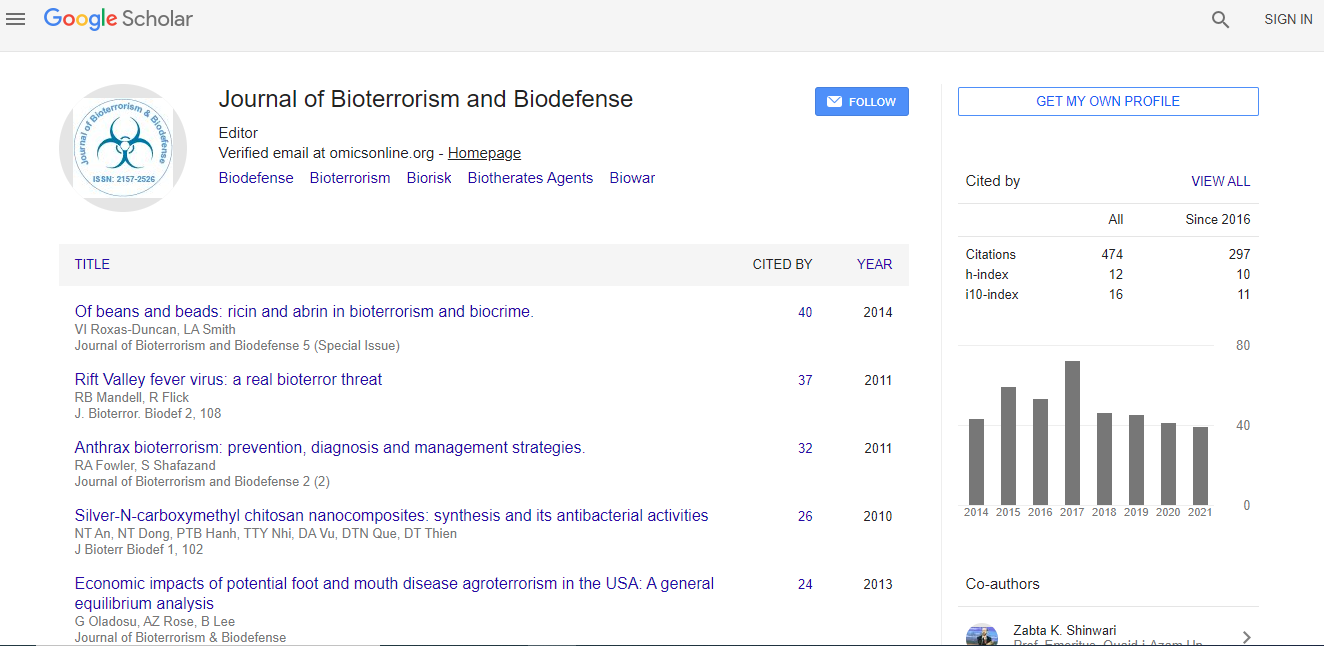Enhancing National Security through Synthetic Biology: A Biodefense Perspective
*Corresponding Author: Peterson Nelson, Biological Defense and Health Security, University of Nebraska Medical Center, U.S.A, Email: WilliamsHalderxuv@gmail.comReceived Date: Jun 02, 2024 / Published Date: Jul 30, 2024
Citation: Peterson N (2024) Enhancing National Security through Synthetic Biology: A Biodefense Perspective. J Bioterr Biodef, 15: 399.
Copyright: © 2024 Peterson N. This is an open-access article distributed under the terms of the Creative Commons Attribution License, which permits unrestricted use, distribution, and reproduction in any medium, provided the original author and source are credited.
Abstract
As the field of synthetic biology rapidly advances, it presents both unprecedented opportunities and significant challenges for national security and biodefense. This paper explores the potential of synthetic biology to enhance national security by improving biodefense capabilities, addressing emerging threats, and strengthening response strategies. We examine the ways in which synthetic biology can contribute to biodefense, including the development of novel biosensors, advanced vaccines, and engineered microorganisms designed to detect and counteract biological threats. The paper also addresses the associated risks, such as the dual-use potential of synthetic biology technologies, and the need for robust regulatory frameworks to manage these risks effectively. Through a review of current applications, policy considerations, and case studies, we provide a comprehensive analysis of how synthetic biology can be leveraged to fortify national security while navigating the ethical and security challenges it poses. This work aims to offer actionable recommendations for policymakers, researchers, and biodefense professionals to harness the benefits of synthetic biology while ensuring the safety and resilience of national security systems.

 Spanish
Spanish  Chinese
Chinese  Russian
Russian  German
German  French
French  Japanese
Japanese  Portuguese
Portuguese  Hindi
Hindi 